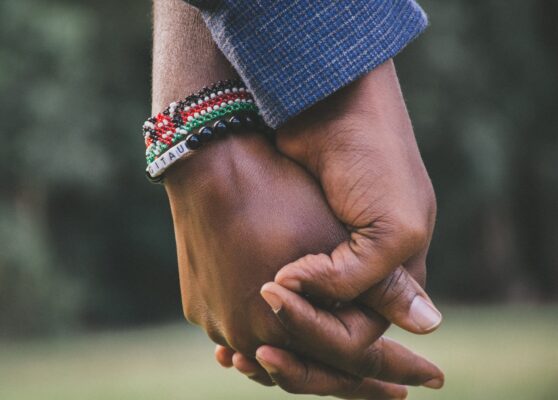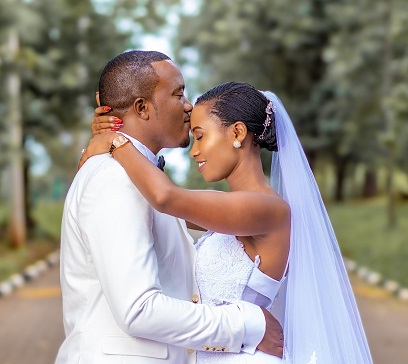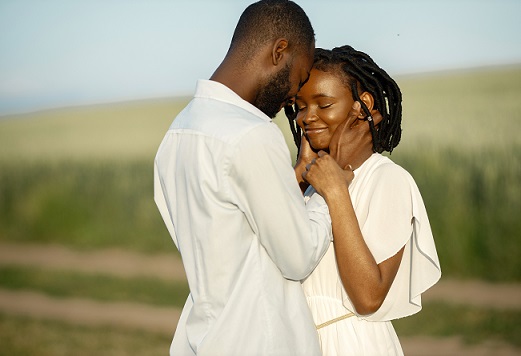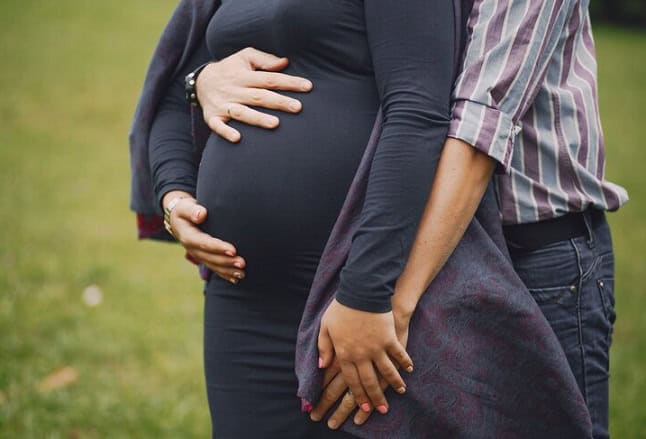Genotype and Blood Group Compatibility for Marriage
14 mins,



Knowing you and your partner’s blood group and genotype is one of the smartest things you can before marriage for the sake of your unborn children.

Genotype and blood group compatibility for marriage is an important health consideration for couples on the journey of marriage and family planning. Blood group compatibility doesn’t affect and determine your ability to have a healthy and happy marriage.
However, the same cannot be said for genotype compatibility, which has actual health concerns if you plan on having biological children with the love of your life.
Knowing you and your partner’s blood group and genotype, and understanding the nuances involved, is helpful in health emergencies such as pregnancy and blood donation.
So, if you want to learn more about genotype and blood type compatibility for marriage, you will surely find this article helpful.
Before going further, knowing what genotype and blood group means is super important. Most people are ignorant of what both of them mean, while others tend to mix them up.
The major difference between genotype and blood group is that a genotype is the two-letter combination that forms the genetic constitution of cells in individuals (AA, AS, SS, AC, and SC), while blood group refers to the different types of blood defined by the locations of antigens on the surface of the red blood cells (A, B, AB and O).

Have you ever wondered why we are all unique yet share similar traits with our tribe or family? Have you ever wondered why you are more like your mom and your sibling or child looks like your grandparent? It’s because of our genotype.
Genotype refers to the complete set of genetic material in an individual organism. It is the unique genetic constitution or makeup of individual living organisms that is transferred from parents to their offspring. Genotype is the complete set of heritable genes from parents to offspring.
Genotype can also be said to be the combination of variants an individual possesses in a specific genetic location. It is a protein that is encoded in an orderly sequence of DNA.
The three main classifications of genotype according to Mendelian genetics include:
Bonus Tip:
An allele is a gene variant that is either recessive or dominant. It is any one of two or more versions of genes in a DNA sequence that occur alternatively at a particular genomic location on a chromosome.
By ‘alternatively’, we mean that an allele is organized in pairs on a chromosome(s) which physically expresses our DNA and genetic material. Alleles require variation, and that is why there are two or more present in genes.
However, a person inherits two alleles, one from each parent. In essence, the combination of an allele constitutes an individual’s genotype.
The haemoglobin found in the Red Blood Cells consists of five genotypes, namely:
As individuals, the precise composition of our blood is very different and varies between us. Blood group is the classification of blood based on the antigens found on the surfaces of the red blood cells (RBC). It refers to the blood group system, which consists of RBC antigens.
The antigens on the surface of the red blood cells determine a person’s blood group, and the difference in structure is what makes up the blood type.
Blood type refers to how blood is classified based on the presence and absence of specific (inherited) antigens and antibodies on the surface of red blood cells. Depending on the blood group system, the antigens may include glycoproteins, proteins, glycolipids, or carbohydrates.
The different blood group types include A, B, AB, and O. The ABO system classifies blood types based on the presence of either the A antigen or B antigen. The ABO blood group antigens have no known function, and people who don’t have the A and B antigens are very healthy.
These blood types are further classified as either positive or negative based on the presence or absence of the Rhesus factor protein antigen. Your blood type is positive (+) if the Rh factor protein is present and negative (-) if it is absent. This classification then multiplies the four main blood groups into eight:

This topic is a very delicate one, and as stated earlier, genotype and blood group compatibility for marriage do not have the same health implications. While blood group doesn’t affect marriage, genotype (if incompatible) can cause health implications in the long run.
Genotype incompatibility in couples occurs when there is a high propensity of having a child with sickle cell disease (SS or SC).
For intending couples, ascertaining you and your partner’s genotype compatibility before marriage is paramount. Parents’ genotype crosses and determines the genotype of the offspring, thus, the importance of ensuring compatibility.
If you marry someone whose genotype is incompatible with yours, you’ll most likely have a child (or children) with sickle cell disease or disorder and battle all sorts of maladies. This is why you must do your due diligence before saying ‘I do’ to the partner of your dreams. It will spare you the trouble.
Being aware of the implications of genotypes and the importance of compatibility will help you make more informed life choices regarding marriage and pregnancy. Ultimately, you can avoid the devastating effects of sickle cell disease.

The universally compatible genotype (regardless of the partner) is AA. Individuals with genotype AA inherit the normal haemoglobin A from both (biological) parents and have an extremely low possibility of having sickle-celled offspring.
Thus, the AA genotype is the best compatible and can marry anybody. AA and SS individuals can only produce AS children, as such, there is no potential danger.
The AS genotype is only compatible with the AA. If AS and AS were to pair, there is a high risk of producing sickle-celled offspring. To put it more plainly, with a combination of AS and AS, there is one out of four chances (AS, AS, AA, and SS) that the offspring will have sickle cell disease.
The same mathematics applies to an AC and AC pairing and AC and AS combination.
Similarly, pairing between AS and SS or the AC and SS is equally as risky and ill-advised, while pairing two sickle-celled individuals will almost certainly result in a sickle-celled offspring.
The same applies when AC is combined. AC and AS combination will produce AA, AS, AC, SC, and sickle cell disease will be SC.
READ ALSO:
| PARENT GENOTYPE | OFFSPRINGS | COMPATIBILITY |
| AA + AA | AA, AA, AA, AA | Compatible (Excellent) |
| AA + AS | AA, AS, AA, AS | Compatible (Good) |
| AA + SS | AS, AS, AS, AS | Compatible (Fair) |
| AA + SC | AS, AC, AS, AC | Compatible (Fair) |
| AA + AC | AA, AA, AA, AC | Compatible (Good) |
| AS + AS | AA, AS, AS, SS | Incompatible (very bad) |
| AA + CC | AC, AC, AC, AC | Compatible (Good) |
| AS + SS | AS, SS, SS, SS | Incompatible (very bad) |
| AS + AC | AA, AC, AS, SC/SS | Incompatible (very bad) |
| AS + SC | AS, AC, SS, SC | Incompatible (very bad) |
| SS + SS | SS, SS, SS, SS, | Incompatible (very bad) |
| SS + SC | SS, SC, SS, SC | Incompatible (very bad) |
| AC + SS | AS, AS, SS, SS | Incompatible (very bad) |
| SS + AC | AS, SC, AS, SC | Incompatible (very bad) |
| AC + AC | AA, AC, AC, SS/CC | Incompatible (very bad) |
| SS + CC | SC, SC, SC, SC | Incompatible (very bad) |
| SC + AC | AS, SC, AC, CC | Incompatible (very bad) |
| AC + CC | AC, AC, CC, CC | Incompatible (very bad) |
| SC + SC | SS, SC, SC, CC | Incompatible (very bad) |

The importance of knowing your blood group status and your soon-to-be spouse cannot be emphasized enough. Generally, blood group compatibility for marriage does not negatively affect marriage or pregnancies.
However, the importance comes into play during cases of emergency like blood transfusion or donation for your partner and potential health complications for the child. In such cases, medical professionals would have to evaluate the Rh factor (positive or negative) compatibility.
Having compatible blood types could save your partner’s life in the event of an emergency. Although blood group is not a factor for a happy marriage, being able to donate blood for your partner in a medical situation is undoubtedly an advantage.
You can study blood group matching tables for marriage to better understand the subject.

The Rh-negative and Rh-positive blood types are not compatible for pregnancy. This occurs when the father is Rh-positive, and the mother is Rh-negative.
Without adequate medical interventions, the combination of these blood types can cause Rh incompatibility and lead to hemolytic disease of the newborn (HDN) or erythroblastosis fetalis in subsequent pregnancies.
Rh Incompatibility is a condition that occurs during pregnancy when the mother is Rh-negative (Rh-) and the baby is Rh-positive (Rh+).

When Rh-negative blood comes in contact with Rh-positive blood, it causes the individual with Rh-negative blood to become sensitized.
This means that the individual’s Rh-negative blood sees the Rh factor (protein) as a foreign body and produces antibodies to combat it. Once these antibodies are produced, they tend to stay.
Although the mother and the fetus don’t share blood systems during pregnancy, small amounts of blood from the fetus can travel through the placenta and straight into the mother’s blood system.
Unfortunately, the blood typing proteins are antigens (which attract immune system antibodies) so the mother’s body treats the Rh protein as a foreign substance. The Rh-negative pregnant mother produces antibodies to fight against the Rh factor, which breaks down the Rh-positive red blood cells of the fetus.
When the red blood cells aren’t sufficient, the baby will lack oxygen, causing severe hemolytic anemia, which leads to severe health complications, brain damage, or even death of the fetus or newborn.
Bonus Tip:
Hemolytic anemia is a disorder whereby the red blood cells are destroyed faster than the body can replace them. The process of this depletion is called hemolysis.
There are no medical concerns regarding O-positive and B-positive blood type compatibility. So yes, a person with an O-positive blood type can marry a person with a B-positive blood type. However, the downside of this union is when the couple has a baby with a positive blood type.
There is no strict rule governing which blood types are compatible for marriage. However, couples with Rh incompatibility (a Rh-negative girl and Rh-positive boy) should be avoided. The reason is that if an Rh-negative girl and Rh-positive boy were to marry, the chances of having an Rh-positive baby are high.
Nonetheless, with adequate medical supervision and interventions, the situation (if it arises) can be managed.
There are health implications if two couples of the same blood group marry. Following the generic principles, a child born to such (biological) parents will have the same blood group. For example, a husband and wife with A+ will have a baby with A+ blood group. So, yes, the parents’ blood group determines a child’s blood group.
Any blood group can marry. However, if the mother is Rh negative, it can result in RH incompatibility and lead to hemolytic disease of the newborn (HDN) or erythroblastosis fetalis in subsequent pregnancies.
The genotypes that shouldn’t think of marrying include AS & SS, AS & AC, AC & SS, and AC & AC. For obvious reasons, SS and SS mustn’t marry since their offspring will surely have sickle cell disease.

Genotype and blood group compatibility for marriage is a delicate subject that must be approached with tact. Many people dating or about to be a couple may not always have the time to run tests. Many don’t even know about genotype and blood group compatibility for marriage and neglect it entirely when planning a family.
With telemedicine, awareness about genotype and blood group compatibility for marriage can be made to people who don’t know. Through educational materials, videos, and interactive tools that explain the concepts of genotype, blood groups, and their implications for marriage and family planning, intending couples can make more informed decisions regarding marriage.
Telemedicine can also help with remote consultations. Intending couples who can’t make the commute or simply don’t have time can virtually consult with healthcare professionals, such as genetic counselors or obstetricians.
Through these virtual consultations intending couples can understand their genotypes and blood groups. They can also receive guidance for genotype and blood group compatibility for marriage.
Telemedicine cannot replace physical consultations and medical examinations. Nevertheless, telemedicine complements traditional healthcare services by reaching people regardless of distance. It is so convenient and eliminates any excuse of ignorance about genotype and blood group compatibility for marriage.
Love may be the basis of a successful marriage; however, understanding genotype and blood group compatibility for marriage is vital for a more healthy family life.
For more emphasis, blood group compatibility does not impair a marriage, but genotype compatibility for marriage should be taken more seriously. With the advances in technology and healthcare (and the information in this article), ignorance is no longer a valid excuse.
Before you marry the love of your life, ensure that they aren’t just giving you butterflies in your tummy. You and your partner must seek medical advice about genotype and blood group compatibility for marriage.
Suppose you have a busy schedule or cannot physically see a doctor for professional help regarding genotype and blood group compatibility for marriage, you can always schedule an online consultation with a certified doctor on KompleteCare.
Cheers to a healthy and unbreakable marriage!
Blood Group Compatibility for Marriage: Healthline
Tsuchimine S, Saruwatari J, Kaneda A, Yasui-Furukori N. ABO Blood Type and Personality Traits in Healthy Japanese Subjects.
Mitra R, Mishra N, Rath GP. Blood groups systems.
O Blood Type – Red Cross Blood Donation
KompleteCare: Blood Group Compatibility Chart for Marriage and Pregnancy
Genotype Archives – Genomix Nigeria
Cerebral Palsy Guidance Blood Type Incompatibility, Rh Incompatibility, and Jaundice

Claire Essi is a health researcher and freelance health content creator. As a health and wellness junkie, she enjoys all things related to quality lifestyle and healthy living.
We publish helpful posts every week!